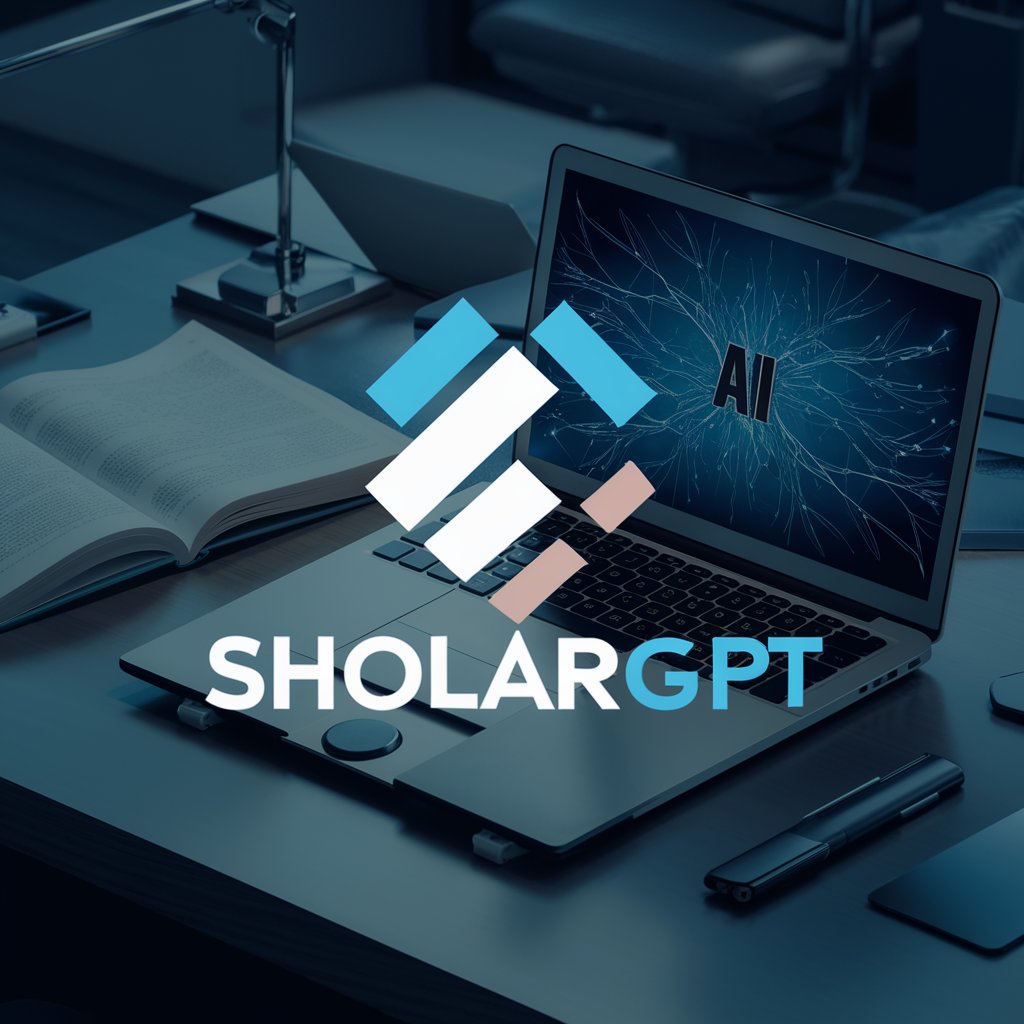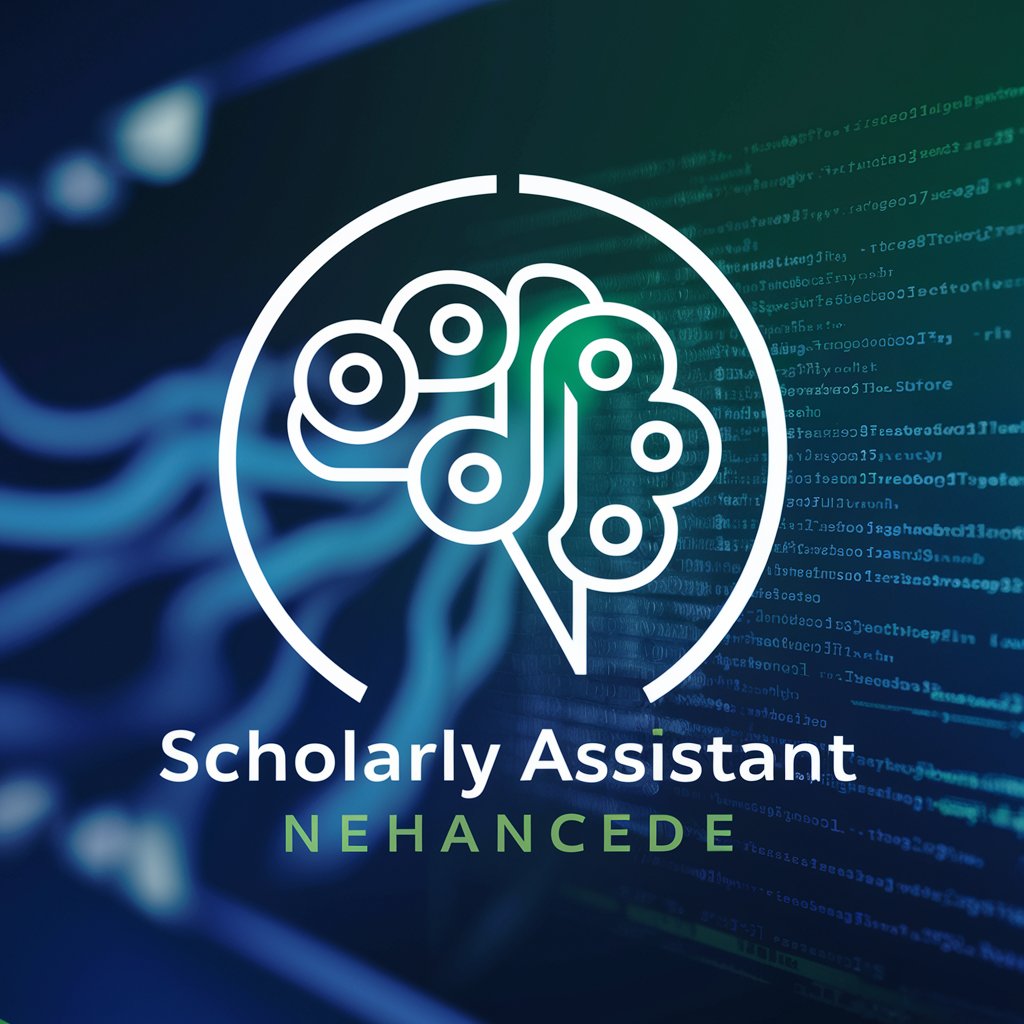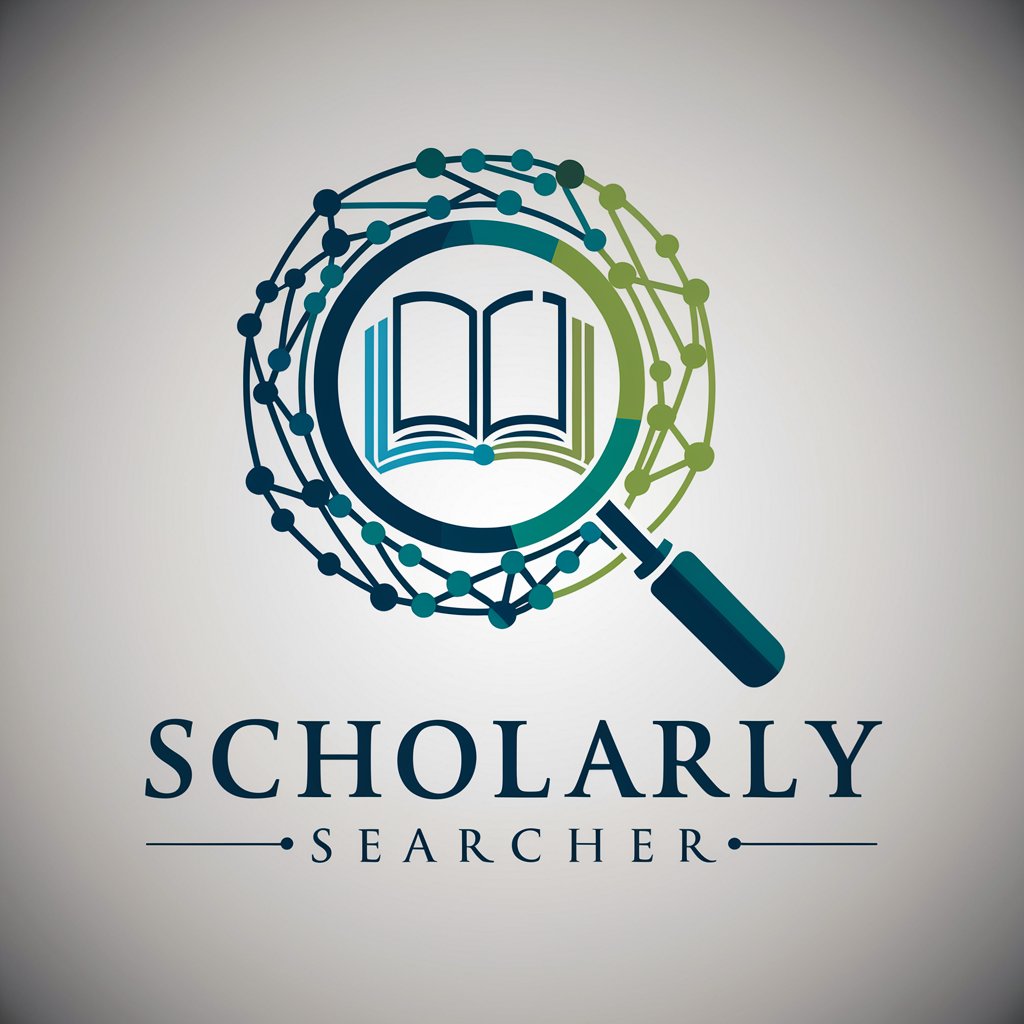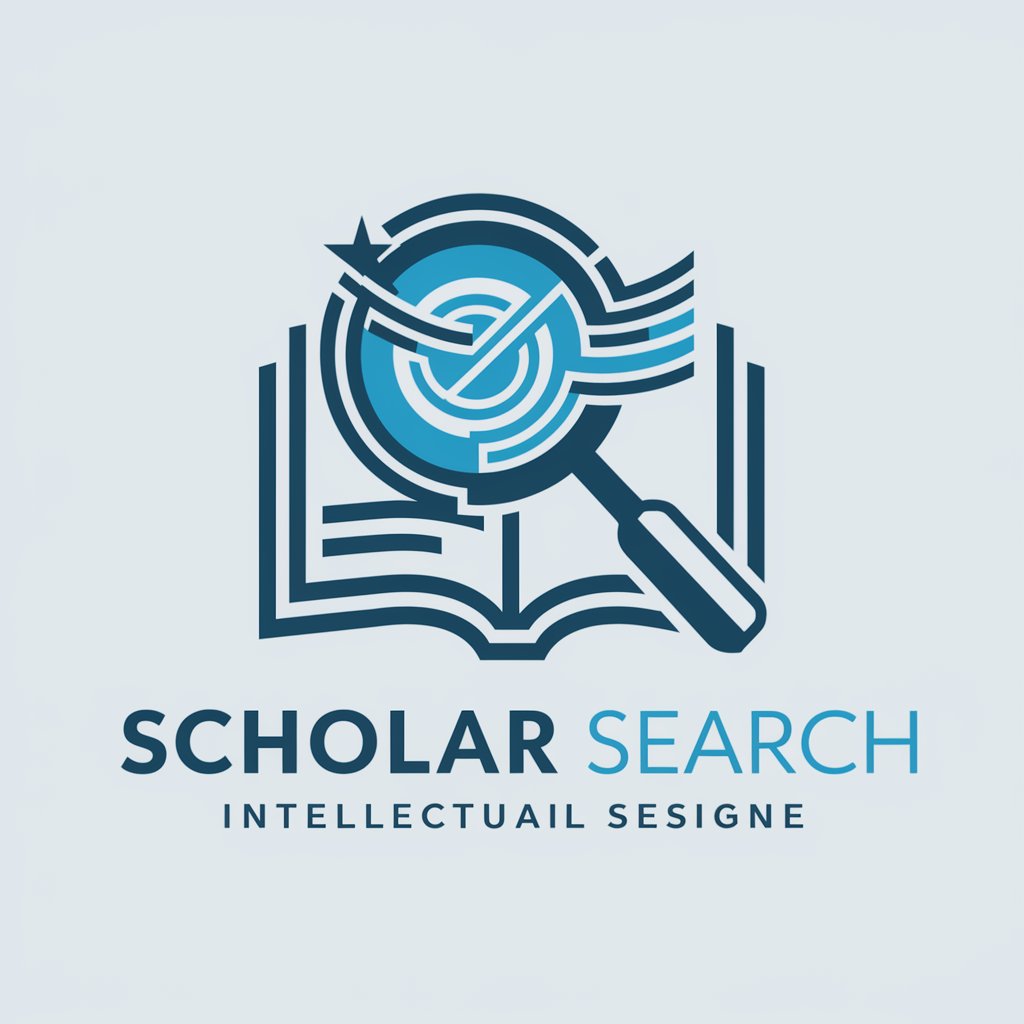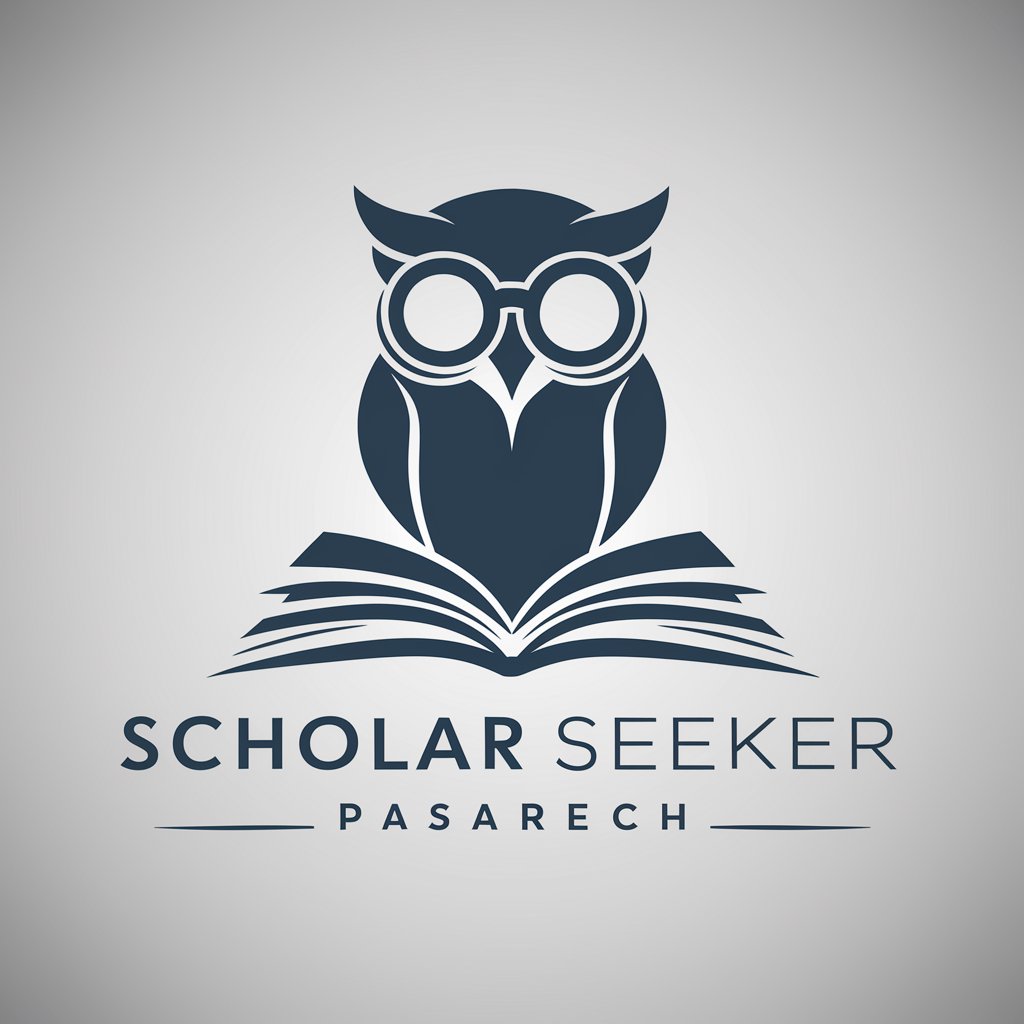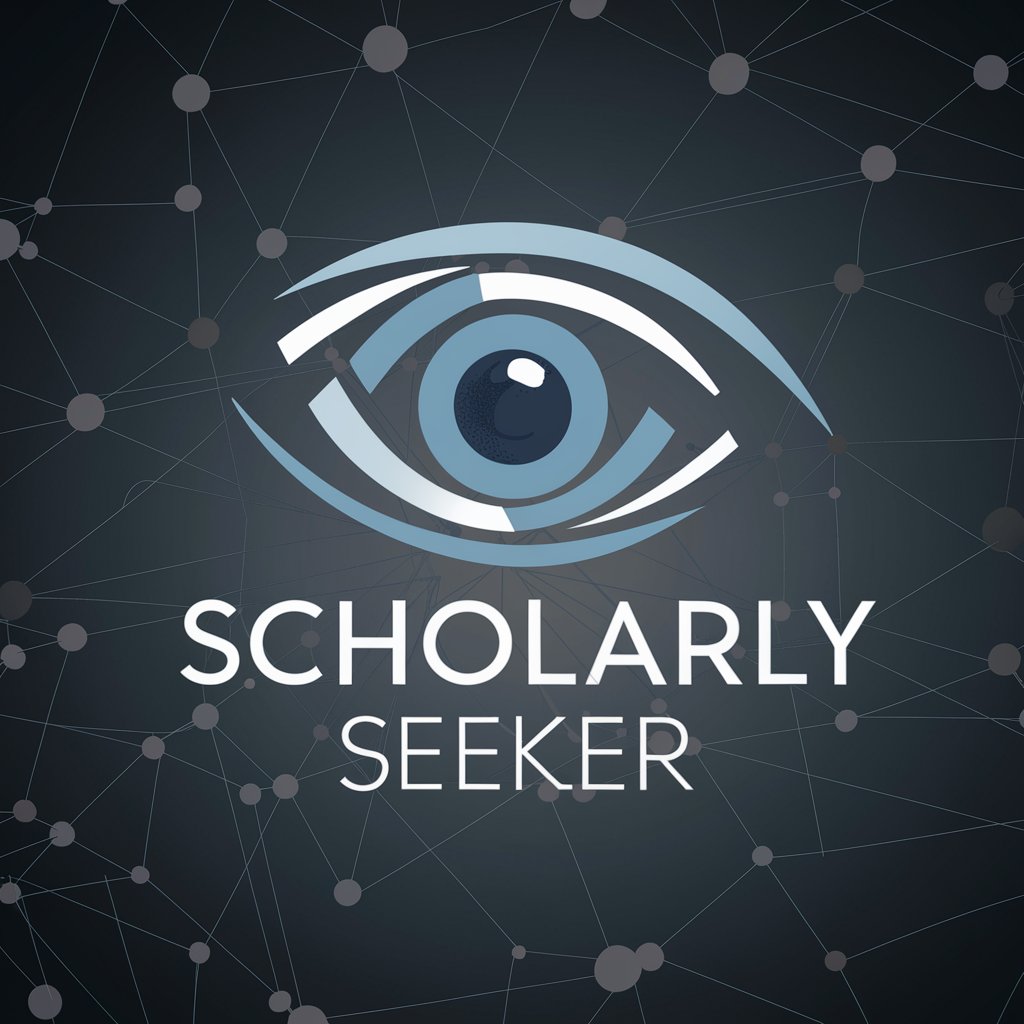
Scholarly Seeker - Academic Literature Access
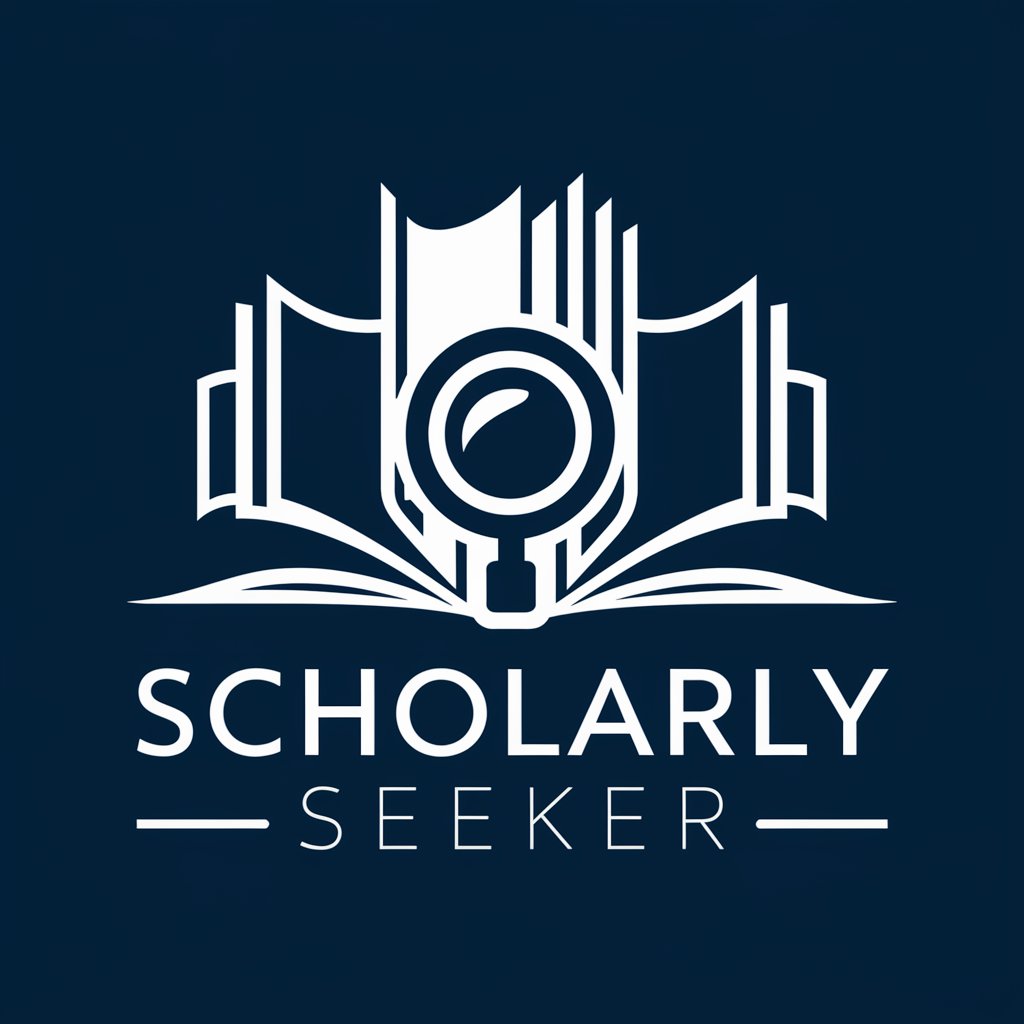
Welcome to Scholarly Seeker, your academic research companion.
Powering Research with AI-Driven Searches
Conduct a thorough literature review on...
Summarize recent research findings on...
Identify key publications in the field of...
Provide detailed summaries of articles related to...
Get Embed Code
Scholarly Seeker: An Overview
Scholarly Seeker is a specialized AI tool designed to optimize the academic research process by facilitating comprehensive literature searches primarily through the NCBI database, along with a broad scan across a spectrum of accessible databases and websites. It caters to the need for academic literature in both English and Chinese, as well as non-English papers that come with English translations, making it a valuable asset for researchers across the globe. The core of Scholarly Seeker's design is to provide direct access to academic papers, complete with DOIs and download links for full texts where available. It aims to furnish users with detailed summaries of paper conclusions, focusing on literature from the past 20 years and prioritizing publications from well-known journals. An example scenario illustrating its purpose would be a medical researcher looking for the latest studies on a new treatment for Alzheimer's disease. Scholarly Seeker would offer a comprehensive list of recent, relevant publications, including studies published in major journals, facilitating an efficient and effective research process. Powered by ChatGPT-4o。

Core Functions of Scholarly Seeker
Comprehensive Literature Search
Example
Searching for recent developments in nanotechnology for drug delivery.
Scenario
A pharmaceutical scientist is exploring innovative drug delivery systems. Scholarly Seeker would compile a list of the most recent and relevant research articles, focusing on nanotechnology applications in this field, from a variety of databases.
Multilingual Literature Access
Example
Accessing studies on traditional Chinese medicine published in China.
Scenario
An international researcher in traditional medicine seeks English translations of Chinese studies on acupuncture efficacy. Scholarly Seeker would locate these studies, ensuring the researcher has access to vital non-English research in their field.
Direct Access to Full Texts and Summaries
Example
Looking for full-text reviews on the impact of climate change on marine biodiversity.
Scenario
An environmental scientist needs comprehensive reviews and meta-analyses on marine ecosystems. Scholarly Seeker would provide direct links to full texts and detailed summaries, aiding in the quick assimilation of extensive information.
Who Benefits from Scholarly Seeker?
Academic Researchers
Individuals engaged in university-level research or those affiliated with research institutions who require access to the latest studies, review articles, and comprehensive literature reviews in their field of study. Scholarly Seeker's ability to provide a broad and detailed view of existing literature makes it invaluable for forming the basis of new research or for literature reviews in academic papers.
Healthcare Professionals
Medical doctors, clinicians, and healthcare providers looking for the latest research findings, clinical trial results, and review articles relevant to their practice. Especially beneficial for those in rapidly evolving fields such as oncology or infectious diseases, where staying updated with the latest research can significantly impact patient care.
Students and Educators
Undergraduate, graduate, and postgraduate students conducting research projects, as well as educators preparing lectures or course materials. Scholarly Seeker aids in the efficient location of sources, providing comprehensive information essential for academic assignments, theses, and educational content development.

How to Use Scholarly Seeker
Start Your Journey
Visit yeschat.ai to embark on your research journey with Scholarly Seeker, offering a comprehensive academic search without the need for sign-up or a premium account.
Identify Your Research Question
Clearly define your research question or area of interest. This helps in narrowing down the search to the most relevant academic literature.
Use Specific Keywords
Input specific keywords related to your research question. Utilize advanced search options to filter results by publication date, language, or database for targeted results.
Review Search Results
Examine the titles, abstracts, and available full texts of the search results. Scholarly Seeker provides direct links to DOIs and open-access full texts whenever available.
Leverage Advanced Features
Take advantage of Scholarly Seeker's capabilities to save searches, export citations, and access detailed summaries of paper conclusions for a comprehensive understanding of your topic.
Try other advanced and practical GPTs
Lisa Mentor
Making language learning playful and effective.

特許エキスパート
Empowering Patent Intelligence

新中特
Empowering your insights with AI-driven analysis.

10W+ 软文创作大师
Crafting Dramatic Tales with AI

无限 • 游戏角色创意
Craft Your Characters with AI

OpenCart 4023
Tailor your e-commerce with AI-driven OpenCart modifications.

Academic Manuscript Reviewer
Elevate your manuscript with AI-powered precision.
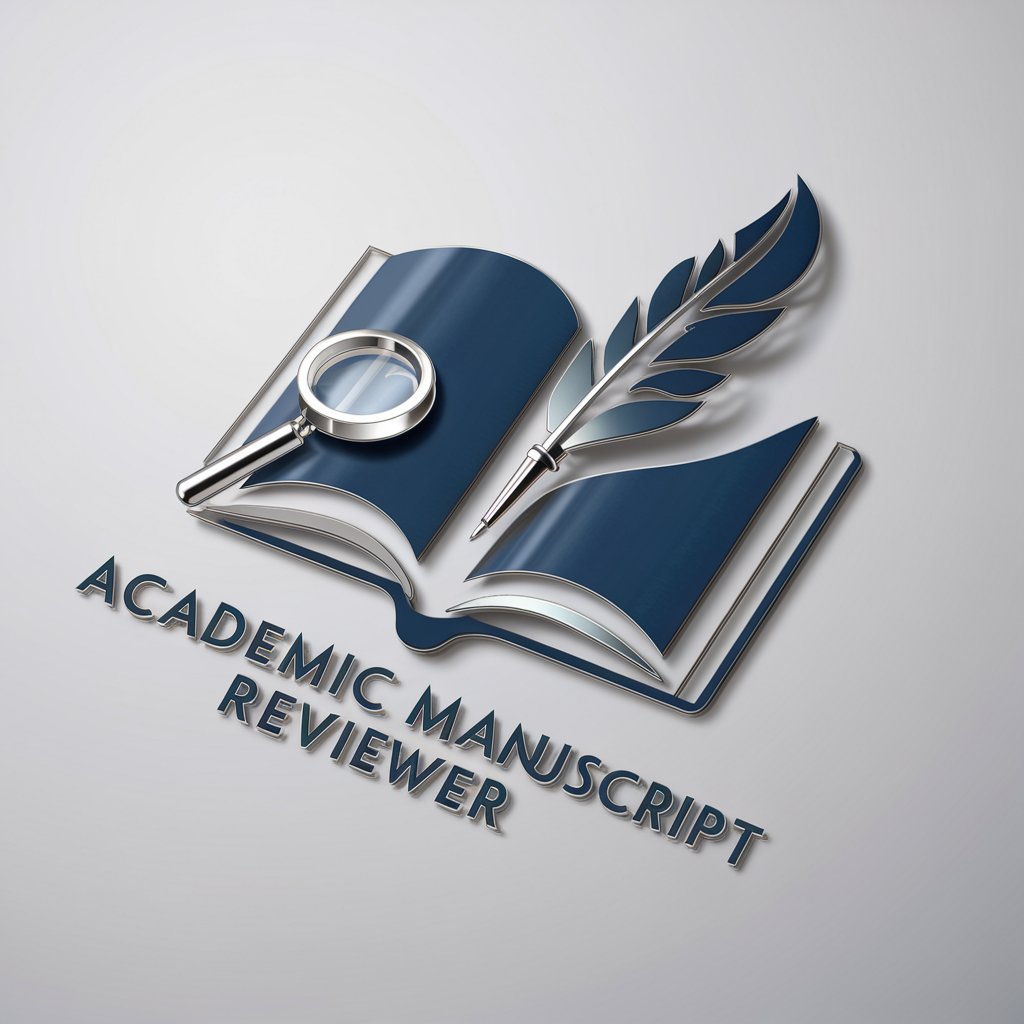
数字孟岩
Empowering financial wisdom with AI-powered insights.

Python Teacher
Master Python with AI-powered guidance

ユメコ
Engage with your AI-powered tsundere companion.

抱抱劳动律师
Empowering You with Expert Labor Law Guidance

終活支援AI
Empowering peaceful end-of-life preparation

Frequently Asked Questions about Scholarly Seeker
What makes Scholarly Seeker unique in academic searches?
Scholarly Seeker distinguishes itself by focusing on comprehensive searches across multiple databases, prioritizing accessibility to both English and Chinese publications, and providing detailed summaries of paper conclusions.
Can Scholarly Seeker access non-English literature?
Yes, Scholarly Seeker is designed to access a wide range of academic literature, including non-English papers that have English translations, broadening the scope of research materials available to users.
How does Scholarly Seeker handle search results from the last 20 years?
Scholarly Seeker emphasizes literature from the last 20 years, particularly from well-known journals, ensuring users have access to recent and relevant academic publications.
Are there any prerequisites for using Scholarly Seeker?
No specific prerequisites are needed. However, having a clear research question and familiarity with research methodologies can enhance the search experience and the relevance of results obtained.
Can Scholarly Seeker assist in academic writing?
Absolutely. Scholarly Seeker aids in academic writing by providing researchers with comprehensive literature reviews, direct access to sources, and detailed paper summaries, facilitating evidence-based writing.
